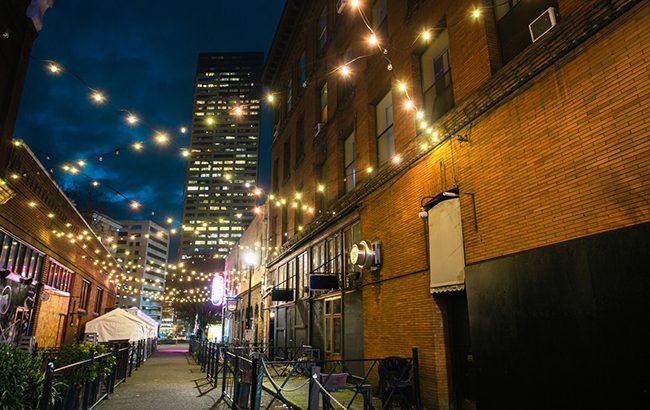UK nightclub closures reach all-time high
By Lauren BowesA report from the Night Time Industries Association (NTIA) has revealed that one in four late-night venues has closed since 2020.

The organisation creates its quarterly Night Time Economy Monitor in collaboration with CGA by NIQ.
The latest report found that nearly 800 UK on-trade businesses have closed since 2020, with just 2,424 late-night venues in operation.
This represents a 26.4% drop since March 2020, compared with a 14.2% contraction seen across the wider hospitality sector.
The NTIA has reason to fear the problem is growing, with losses stepping up in the past three months. The sector declined by 1.7% between March and June 2025, totalling three net closures a week.
The report attributed the growing intensity to the increases in minimum wage and employers’ National Insurance contributions (NICs), which came into effect from April.
The decline was evident across all regions of the UK, with Wales and London the hardest hit. The former declined by 16.8% since 2020, while the capital suffered a 15.3% contraction.
In terms of major cities, Birmingham experienced the largest decline in late-night venues, losing 27.5%.
Meanwhile, Greater London saw a loss of 20.8%. The capital had 433 late-night venues in March 2020, but now has just 343.
Other cities to experience significant falls were Edinburgh (-13%) and Liverpool (-13.9%).
Michael Kill, CEO of the NTIA, said: “We’re witnessing the loss of important social infrastructure from our towns and cities. Nightclubs and late-night venues are more than just places to dance – they’re cultural institutions, economic engines and cornerstones of community life.
“The closure of one in four late-night venues changes the UK’s cultural landscape. Small venues nurture new talent, fuelling the success of globally renowned artists and the creative economy. You don’t get Ed Sheeran, Dua Lipa, or Oasis without small venues. The collapse of independent venues puts the entire night-time economy at risk.”
The report also identified ‘night-time deserts’ – areas which now have very few night-time venues, if any at all. Around a quarter (26%) of British towns and cities that had at least one nightclub in 2020 no longer do so, while 16% no longer have any late-night economy venues.
Around 2% of towns have lost all their venues operating in the wider evening economy, which includes cocktail bars and pubs.
A bright spot for themed bars
The wider ‘evening’ economy – which includes cocktail bars and pubs – fared better, growing by 3.2% year on year.
This sector contracted by 8.1% since March 2020, compared with the late-night sector’s 26.4%
The number of bars fell by 0.9% between March and June 2025, however there were pockets of growth. Themed bars grew by 5.6% in the recent quarter and by 21.4% in the past 12 months.
Craft bars also experienced growth, up by 12.7% between March and June. Cocktail bars, however, were down by 1.9%. The report matched this decline to CGA by NIQ’s trading data showing a year-on-year decline for spirits.
Late-night bars also struggled, falling by 3.1% and representing three net closures a week. The report added that this was due to some operators switching to themed bars, but also cited a consumer desire to go out earlier than they did pre-Covid.
The bar sector was described as one of hospitality’s “strongest performers” in the past five years, down by just 3.3% since March 2020.
#StopTheDancefloorTax
To combat the decline, the NTIA has launched a campaign called #StopTheDancefloorTax. The campaign calls on the government to cut VAT for the on-trade and wider hospitality sector; reinstate the NIC thresholds for the sector; and sustain business rates relief until ‘meaningful’ reform is delivered.
Sacha Lord, chair of the NTIA, said: “These figures are deeply worrying. Night-time venues are not just businesses – they are cultural hubs, training grounds for artists, and vital contributors to local economies. Losing one in four since 2020 risks creating ‘night-time deserts’ and costing more jobs across the sector.
“We need urgent action: a VAT cut, business rates reform, and a reversal of NIC thresholds to protect venues, sustain employment, and ensure our cities remain vibrant after dark for generations to come.”
Related news
UKHospitality: Scottish Budget goes 'nowhere near far enough'
